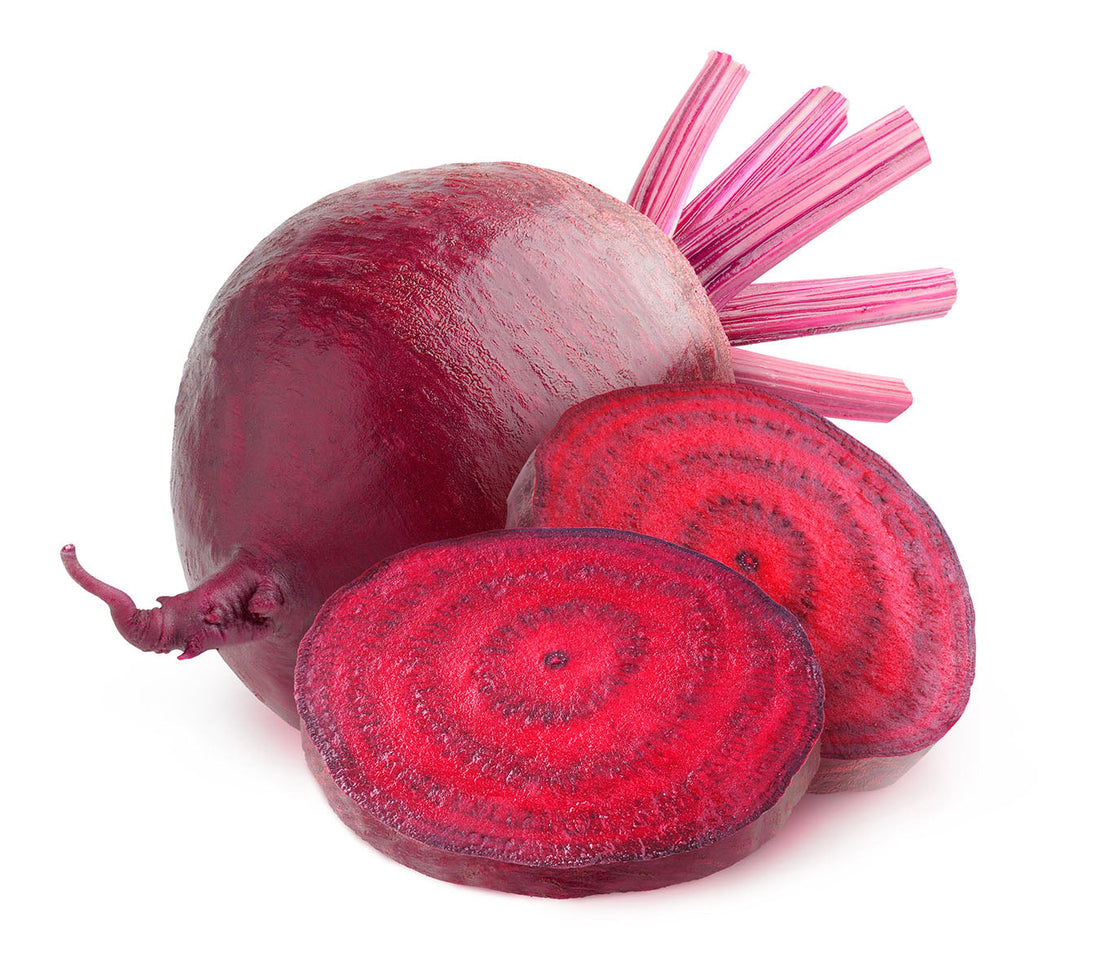Learn the History of Beets

Share
Beetroot, also known as Beta vulgaris, has been used for centuries. The root of the beet plant has a rich history of being a staple food in many cultures.
The ancient Egyptians were some of the first to use beets for it health properties. The ancient Greeks and Romans also used beets.

Components of Beetroot
The properties of beets are largely due to the presence of compounds called betalains, which are responsible for the red color of beets. Betalains are a type of pigment that has been shown to have antioxidant and detoxifying effects (3). Beets also contain other compounds, including flavonoids, which are known for their antioxidant effects (3), and saponins, which have been shown to have immune-boosting effects (4).
Beets are a rich source of iron, which is necessary for the production of red blood cells. By increasing the body's iron levels, beets can help to improve the oxygen-carrying capacity of the blood, which can be beneficial for people (1).
Benefits of Beets
The nitrates found in beets have been shown to relax and dilate blood vessels. In addition, the antioxidants found in beets can help to reduce oxidative stress.
Beets have been used for digestive problems, such as constipation and indigestion. The high fiber content of beets can help to promote regular bowel movements (1), while the betalains found in beets have been shown to have a protective effect on the digestive tract (4).
Beets have been used for their cosmetic benefits. The betalains found in beets have been shown to have skin-brightening effects (3).
Beets have also been used as a natural food dye. The red color of beets can be used to add color to a variety of foods, including desserts, jams, and jellies (2).

Overview
While beets have been used medicinally for centuries, it is important to note that more research is needed to fully understand the potential health benefits of beets. However, beets are a nutritious and delicious addition to any diet, and they may provide a variety of health benefits when consumed in moderation.
In conclusion, the history of beets for medicinal use dates back centuries, with various cultures utilizing the root of the beet plant for health. Today, beets are widely recognized for their numerous health benefits and are a popular choice for overall health and well-being.
Herbal Roots Organic Beet Root supplement has 1500mg of pure beet root powder and nothing else!
Sources
(1) Cunnane, S. (1995). Survival of the fattest: The key to human brain evolution. Hudson, NY: Lindisfarne Press.
(2) Foster, H. (1999). Herbal health care for women. New York, NY: Random House.
(3) Borrelli, F., Capasso, R., Aviello, G., Pittalà, V., Gallo, L., et al. (2015). The plant kingdom as a source of anti-inflammatory agents. Phytother Res, 29(2), 207-216. doi:10.1002/ptr.5260
(4) Sharma, P., Prakash, A., & Dubey, R. (2014). Saponins: A versatile class of natural compounds with diverse biological activities. International Journal of Biological Macromolecules, 68, 1-10. doi:10.1016/j.ijbiomac.2014.03.024
(5) Lau, B. H. S., Muhlhausler, B. S., & Smith, R. A. (2017). The effect of beetroot juice supplementation on blood pressure in healthy adults: A systematic review and meta-analysis. Journal of Nutrition and Metabolism, 2017, 1-11. doi:10.1155/2017/9591756

